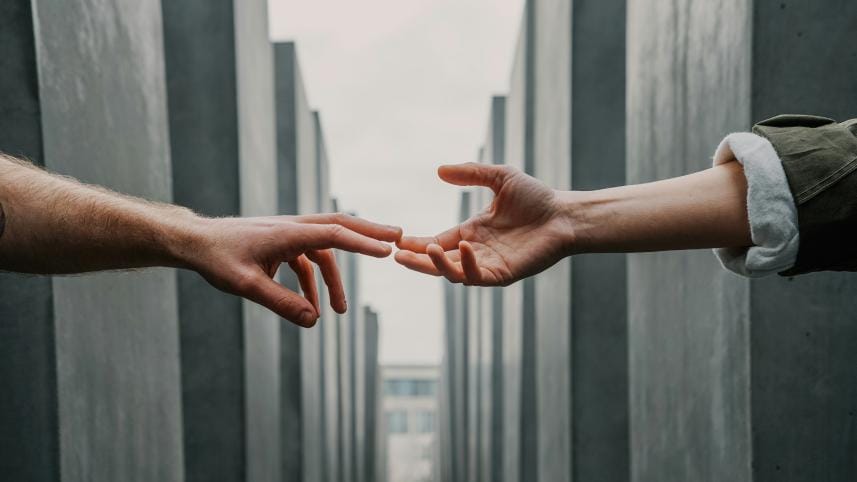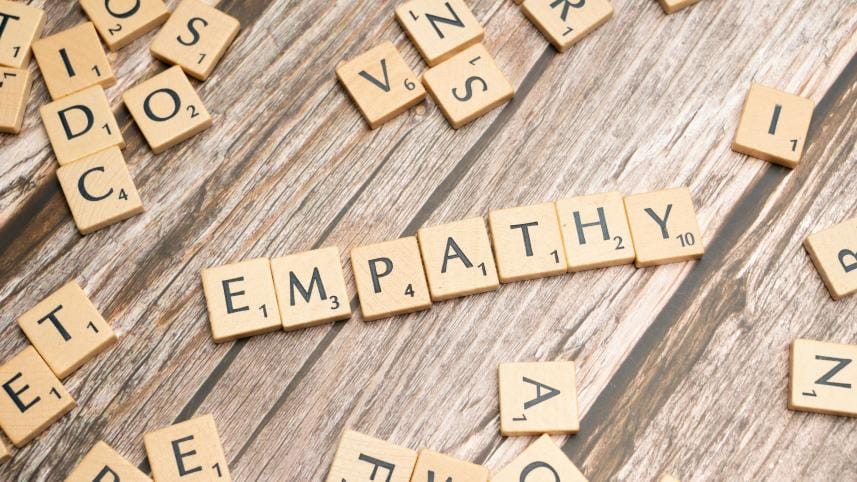Are you kind or just collecting likes?

The rise of pop psychology on social media has informed us about myriad mental health issues. At the same time, it has also instilled in us the knee-jerk reflex to self-diagnose ourselves.
Unfortunately, in most cases, these narratives become self-serving when people make claims of being an 'empath.' As a result, they focus on performative 'niceness' rather than genuine kindness. Today, everyone's an 'empath' diagnosed and certified by Facebook and Instagram.

Mariyam Sultana, Psychological Counsellor for Psychological Health & Wellness Care (PHWC), informs on the changing human narratives in a tech-driven Bangladesh.
The foundation of empathy
According to Mariyam, empathy is attached to genuineness and compassion. "Whether or not someone is actually empathetic is dependent on their ability to understand your perspective. In short, can they actually put themselves in your shoes? Authentic empathy can be felt when someone views your predicament through a compassionate lens, tries to gauge your feelings and reassures you with sensitivity."
Adding to this, she clarifies the common confusion between empathy and sympathy. While empathy enables people to relate to someone's hardships, sympathy only offers surface level concern while remaining detached from the sufferer's experiences.
The fractured class, culture and privilege
She explains, "The practice of appearing 'kind' manifests from our childhoods, with elders pressuring us to be nice to everyone. These teachings are present in school textbooks, imposing black and white concepts of socialisation without addressing the grey areas." By learning these in our formative years, we remain stuck in these behaviours. As adults, there's no way to navigate away from these life lessons, let alone finding different approaches to connect with people. Hence, authentic feelings remain an alien concept here.
Mariyam also addresses the cultural habit of people-pleasing and how it impacts our authenticity. "We tend to lose sight of ourselves, and in the process become detached with society and over time, with our friends." This traces back to our need to be subservient to others, with the hopes of fitting into the fabric of family and society. These insecurities not only cause us to lose ourselves along the way, but also compromise our ability to connect with others- who may align with us," she explains. Hence, women often bear the brunt of people-pleasing, as do some men in society.
Class and academic privileges also influence our ability and inability to empathise with the experiences of others. Mariyam finds that in rural areas, people are able to acknowledge their feelings, despite the barriers to verbalise. Additionally, collective living enables villagers to seek empathy from more than one source. Urban families on the other hand, are more separated from their communities. Which is why we remain oblivious to what's happening to our neighbours next door. Therefore, class and education privileges not only disconnect our ability to feel for others, but also enables misuse of knowledge.

The self-tooting horn
Mariyam observes that people today misinterpret connection. Connection is what we think of others and what they think of us. "While social media can be useful for us, it will still validate content without doing an accuracy check between facts and performance," she explains
People often want to align with a certain agenda on social media. For example, someone appearing to help a wounded animal may just be focused on the reach of their post for how it positions them in society as opposed to raising awareness for the actual cause. This enforces the idea that they fall under the spectrum of 'good' as a person. When faced with little to no engagement, it may leave this self-proclaimed empath starved for attention from specific people.
Against this performative kindness bubble, selective empathy often gets a bad rep. But Mariyam confirms that it's not realistic to expect empathy from everyone. "Socially, if we continue being agreeable with people, we prevent them from seeking other opportunities," she says.
Inner narrative check
The counsellor reflects that becoming overconfident and labelling ourselves as totally empathetic can be risky, considering how complex the human mind is. Being open to knowing ourselves allows us to hold space for our limitations, encourage us to grow personally, tackle challenges, learn about others and help them in the process.
Mariyam suggests understanding the self and surrounding events in order to differentiate between authentic empathy and projection.
"If someone is being mistreated and it affects you emotionally, you may want to ask why it resonates with you, and how are you impacted by it? Moreover, was rejection something you felt in your own life? A good way to understand this is by journaling," she recommends.
Authenticity in action
"If you genuinely want to help people who are struggling in school, university or workplace, you can create a safe space where they can share in confidence. In case they are hesitant to discuss, you can connect them to professional help," suggests Mariyam.
As for families, she suggests being open to conversations and modelling positive behaviour within the home and beyond to create a behavioural blueprint for children. "There are times even children refuse to come through for their parents. In such cases, labelling them negatively validates that they are only capable of socially unacceptable behaviours. Instead, maybe try discussing how and why you need their support. Additionally, allow them to respectfully share the reason behind their decisions," she emphasises.
Mariyam ends with the wisdom that internet trends alone should not be one's sole confirmation of goodness. "Despite presenting ourselves positively, we may be surprised to find there's also darkness within us — such as jealousy. But there may also be underlying reasons for that. We need to be open to the idea of understanding it. Then only can our authenticity shine through."



 For all latest news, follow The Daily Star's Google News channel.
For all latest news, follow The Daily Star's Google News channel.
Comments